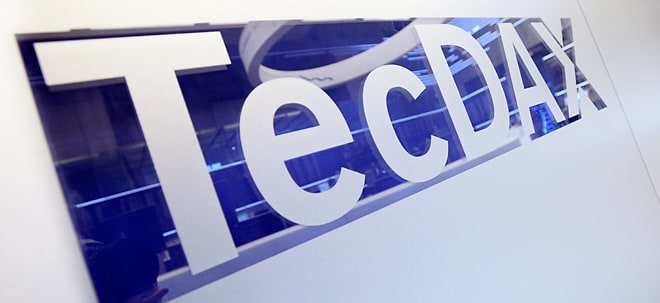Vielleicht kann`s bitte mal einer kurz übersetzen. Danke.
Gruß E.H.
NEW YORK: Collapsed US energy trading giant Enron Corp has won a bankruptcy judge’s approval to send its reorganisation plan to creditors for backing, moving it one step closer to exiting Chapter 11 bankruptcy protection.
Enron, which imploded following an accounting scandal in 2001, received the green light for its plan from judge Arthur Gonzalez at the federal bankruptcy court here on Tuesday, according to Luc Despins, a lawyer with Milbank, Tweed, Hadley & McCloy LLP, which represents Enron creditors.
By winning the judge’s approval, Enron has cleared the last major hurdle before the reorganisation plan’s confirmation hearing, expected in April. After filing for Chapter 11 bankruptcy protection on Dec 2, 2001, the company had become the poster-child for corporate fraud and excess in the late 1990s.
Creditors that disliked the reorganisation plan raised more than 50 objections at Tuesday's court hearing, but the judge overruled some and resolved others. He also asked for some changes in the plan’s language.
Originally filed in July, the plan has undergone a handful of revisions and now offers to pay creditors roughly 20% of the US$66.4bil of debts claimed.
General unsecured claims against Enron are expected to receive 17.3 US cents on the dollar, while debt holders of the company's former trading unit, Enron North America, will receive 20.2 cents on the dollar. – Reuters
http://biz.thestar.com.my/news/story.asp?file=/...058038&sec=business
Judge Rejects Deal in Enron Probe, Slowing U.S. Case
__________________________________________________
01-08-04 12:04 AM EST
A carefully orchestrated set of actions that could have greatly advanced the federal criminal probe of Enron Corp.(NYSE:ENE) was at least temporarily thrown off track when a federal judge refused to endorse a plea agreement with the wife of the company's former chief financial officer, Andrew Fastow.
The agreement between Lea Fastow and federal prosecutors would have cleared the way for a related government plea deal with Mr. Fastow. The former Enron executive also had tentatively agreed to cooperate in the continuing criminal investigation into the collapse of the once-highflying Houston energy concern, according to people familiar with the matter. Mr. Fastow would be the highest- ranking former Enron official yet to plead guilty to criminal activities.
Mr. Fastow is potentially a valuable source of information for prosecutors against other former top executives of the company, including former chief executives Kenneth Lay and Jeffrey Skilling. Mr. Fastow, in his position as finance chief, dealt regularly and closely with both men.
Mr. Fastow's anticipated cooperation under the plea deal had caused prosecutors to plan to file criminal charges Thursday against former Enron chief accounting officer Richard Causey. As a result of the problem over Ms. Fastow's plea agreement, prosecutors pulled back plans to file those charges, though Mr. Causey remains a focus of the investigation, according to a person familiar with the matter.
Mr. Causey declined to comment on the investigation. A spokesman for Mr. Fastow also declined to comment, while an attorney for Ms. Fastow couldn't be reached to comment.
The government's plans went awry when Houston federal judge David Hittner, who is presiding over Ms. Fastow's criminal case, wouldn't sign off on her plea agreement at a closed hearing on the matter. Judge Hittner indicated that he thought the proposed sentence of five months in prison followed by five months of home detention wasn't sufficient, a person familiar with the matter said. The agreement called for her to plead guilty to one count of filing a false tax return, which under federal sentencing guidelines exposed her to a sentence of between 10 months and 16 months. Ms. Fastow, a onetime Enron employee, faces six counts of conspiracy and filing false tax returns in connection with her husband's Enron-related transactions. Absent a plea agreement, Ms. Fastow is scheduled to go to trial next month.
Parties in the case had been expecting a routine approval from the judge. Now, both sides are having to re-evaluate what to do next. Part of Mr. Fastow's incentive for a plea agreement, which would have carried for him a 10-year prison sentence, was to expose his wife to as little jail time as possible. The Fastows have two young sons. Without a finalized plea agreement for his wife, Mr. Fastow isn't likely to enter into a deal of his own, a person familiar with the matter said.
"While judges generally accept plea bargains, it's not unheard of for a judge to reject a plea deal," said Jacob Frenkel, a former federal prosecutor and a former enforcement attorney for the Securities and Exchange Commission. Mr. Frenkel, who doesn't have a role in the investigation, said the judge in Ms. Fastow's case might have objected to the arrangement because it didn't leave him flexibility to determine a sentence within the guideline range.
Still, Mr. Frenkel said that it shouldn't be assumed that the deal is dead simply because it was rejected. "They could go back and revisit the same deal and [the judge] might reconsider or accept it with some tweaking of terms," he added. Such a development would pave the way for prosecutors to move ahead with the actions related to Mr. Fastow and Mr. Causey.
The most immediate impact outside of the Fastow family was on Mr. Causey. It appears that as part of his plea negotiations, Mr. Fastow had agreed to provide information about the former chief accounting officer. Without Mr. Fastow's plea bargain and cooperation agreement, that information wouldn't immediately be available to prosecutors, a person familiar with the case said. While prosecutors are still looking to bring charges against Mr. Causey, the process could be longer and more painstaking without help from Mr. Fastow, this person said. The scope of any eventual charges might also be narrower.
A lack of cooperation from Mr. Fastow also could hamper prosecutors' efforts to gather evidence of possible criminal wrongdoing by Messrs. Lay and Skilling, who are widely viewed as the most important subjects of the inquiry.
As with many major federal white-collar crime investigations, prosecutors in the Enron case have been trying to work their way up the corporate ladder in the search for crimes. Mr. Fastow, who was generally regarded within Enron as a protege of Mr. Skilling, might be particularly helpful in providing information about the former Enron chief.
"Having cooperation from Fastow, who dealt regularly with Skilling, could advance the investigation much faster than if you didn't have him," said one person familiar with the probe. Messrs. Lay and Skilling are still being looked at as part of the investigation, people familiar with the matter said. Both men have denied wrongdoing during their tenures at Enron.
Like Mr. Fastow, Mr. Causey, as Enron's former chief accountant, was directly involved in many of the company's most contentious and suspect transactions. He also regularly interacted with other top Enron executives. In its initial criminal complaint against Mr. Fastow, the government contended that Mr. Causey, who was referred to in the complaint by his title of chief accounting officer, had taken part in making false representations to the Enron board regarding some of those transactions. The complaint also alleged that others involved in making the false representations included Mr. Fastow and Enron's chief executive. The document didn't identify whether it was referring to Mr. Lay or Mr. Skilling.
Rebecca Smith and John R. Wilke contributed to this article.
Write to John R. Emshwiller at john.emshwiller@wsj.com
Dow Jones Newswires
01-08-04 0004ET
Copyright (C) 2004 Dow Jones & Company, Inc. All Rights
http://news.morningstar.com/news/DJ/M01/D08/1073538661621.html
|


 Thread abonnieren
Thread abonnieren

